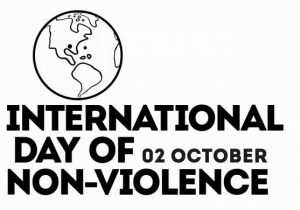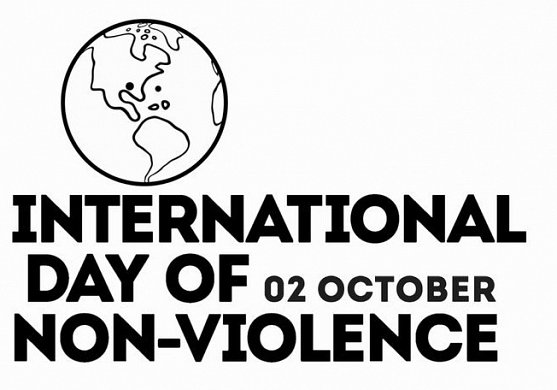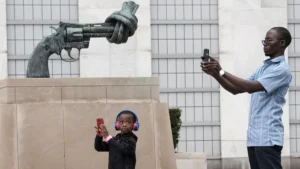
The International Day of Non-Violence is observed on 2nd October, the birthday of Mahatma Gandhi, leader of the Indian independence movement and pioneer of the philosophy and strategy of non-violence. The International Day is an occasion to “disseminate the message of non-violence, including through education and public awareness”. This day is referred to as Gandhi Jayanti in India.
History
On 15 June 2007, the United Nations General Assembly voted to establish 2 October as the International Day of Non-Violence. The year 2020 marks 151st birth anniversary of the global peace icon who was born on 2 October 1869, in Porbandar in Gujarat.
The life and leadership of Mahatma Gandhi
Gandhi, who helped lead India to independence, has been the inspiration for non-violent movements for civil rights and social change across the world. Throughout his life, Gandhi remained committed to his belief in non-violence even under oppressive conditions and in the face of seemingly insurmountable challenges.
The theory behind his actions, which included encouraging massive civil disobedience to British law as with the historic Salt March of 1930, was that “just means lead to just ends”; that is, it is irrational to try to use violence to achieve a peaceful society. He believed that Indians must not use violence or hatred in their fight for freedom from colonialism.
Some of the books written by Mahatma Gandhi are:
- The Story of My Experiments with Truth
- The Moral Basis of Vegetarianism
- Peace: The Words and Inspiration of Mahatma Gandhi (Me-We)



 Veteran Editor and Former Ambassador HK ...
Veteran Editor and Former Ambassador HK ...
 Finn Allen Creates History With Fastest ...
Finn Allen Creates History With Fastest ...
 International Day for Disarmament and No...
International Day for Disarmament and No...








